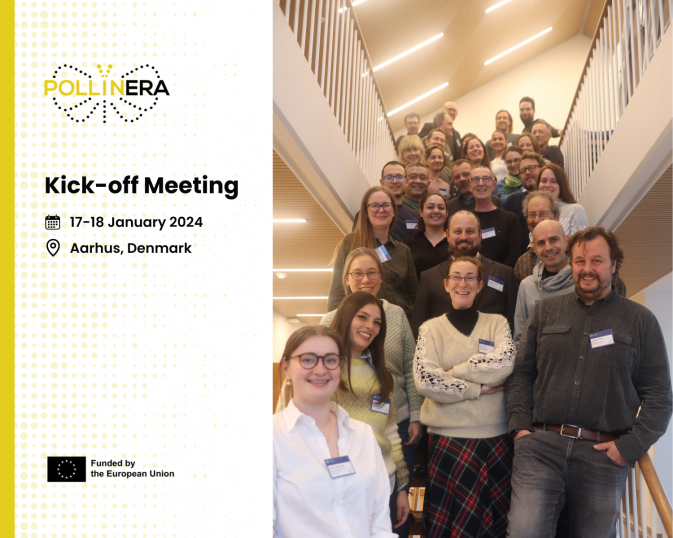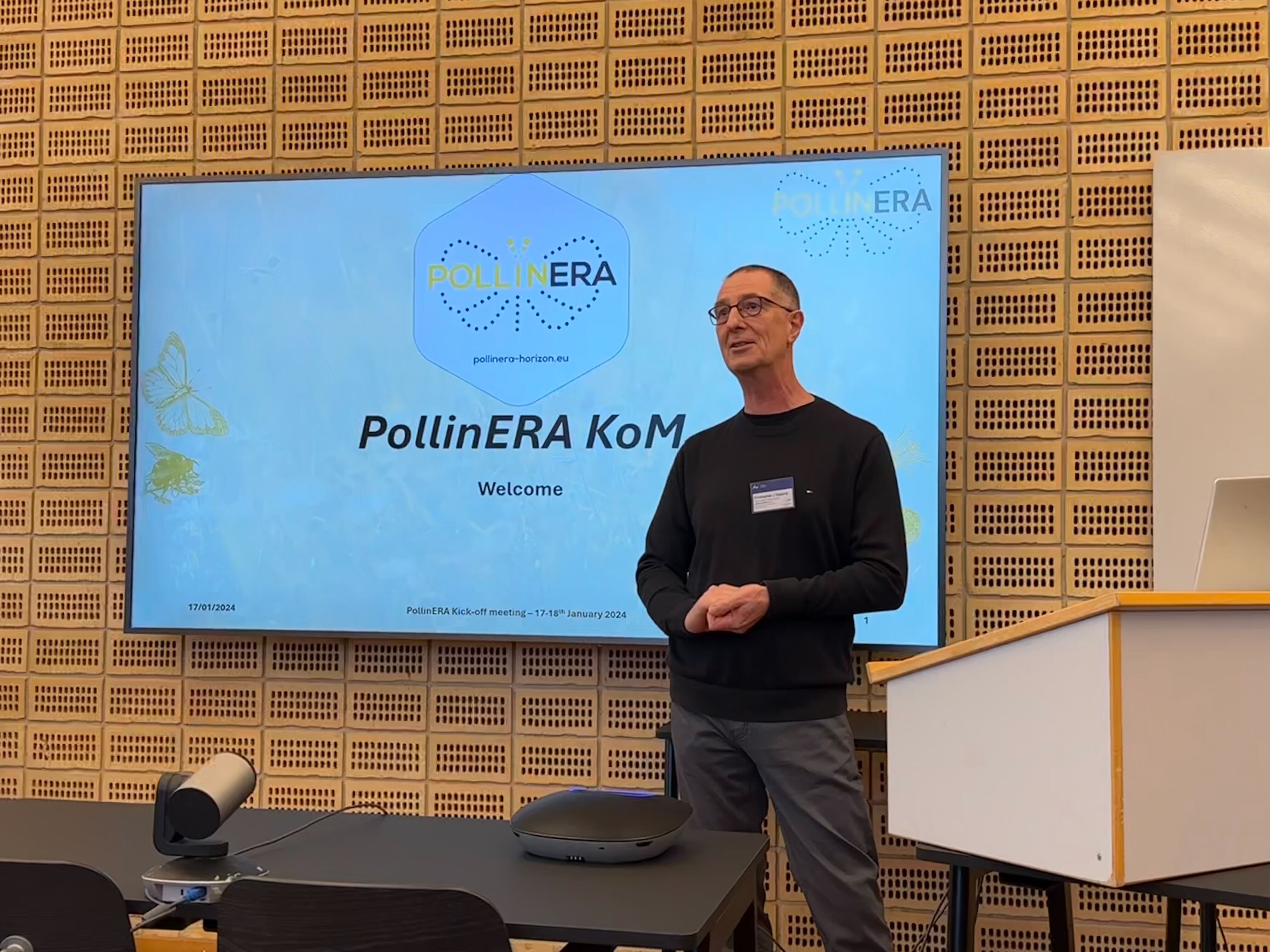PollinERA officially kicked off: Systems-based Environmental Risk Assessment for wild bees, butterflies, moths and hoverflies

Between 17 and 18 January 2024, experts from various realms of knowledge – from pollinator ecology, pesticide exposure and toxicological testing, to stakeholder engagement and communications – gathered in Aarhus, Denmark, to officially launch the PollinERA project. The two-day event seeded fruitful discussions on the project’s specific objectives, mission, methodology, outcomes and expected results.
During the first day of the event, project coordinator Prof. Christopher John Topping (The Social-Ecological Systems Simulation (SESS) centre, Aarhus University) welcomed the consortium and introduced the project’s mission, methodology, outcomes and expected results for the next four years. After that, project manager, Luna Kondrup Marcussen (SESS, AU) took the floor to talk about internal administration and communication to help the consortium complete their tasks and reach deadlines effectively.

PollinERA’s coordinator Prof. Christopher J. Topping (The Social-Ecological Systems Simulation Centre, Aarhus University) gave a warm welcome during the kick-off meeting of the project in Aarhus, Denmark.
A special contribution to the meeting came from Christophe Coudun, Andreas Gumbert and Sofie Hofkens, who shared insights about interactions between the project and the European Research Executive Agency (REA), The Directorate-General for Environment (DG ENV) and Directorate-General for Health and Food Safety (DG SANTE).
Fabio Sgolastra (University of Bologna) opened the Work Package Presentations session with an overview of WP1: Pollinator Exposure and Sensitivity, which aims to provide Standard Operational Procedures for pesticide toxicological testing of different insect pollinator taxa, which are later used as OECD guidelines and fed on the EU Pollinator Hub.
Next on stage was Emilio Benfenati (Mario Negri Institute for Pharmacological Research) who shed light on WP2: Predictive Toxicology, which will use machine learning to develop in silico models to assess the effects of pesticides and other pollutants towards pollinators.
WP3: Pollinator Modelling was presented by Andreas Focks (Osnabrück University) and Jordan Chetcuti (Aarhus University). It aims to develop TKTD (Toxicokinetic-Toxicodynamic) models integrating multiple exposure pathways and links to the pollinator species models.
Maj Rundlöf (Lund University) introduced WP4: Monitoring and Risk Indicators, which will develop and test a co-monitoring scheme for tracking pesticide exposure and communities of key pollinator groups across European cropping systems, as well as develop pesticide risk indicators for these pollinators.
WP5: Systems Approach for Pollinator ERA and Policy Support, which was presented by Christopher J. Topping, aims to integrate the toxicology, in silico toxicological models, animal modelling, and monitoring into a framework for systems ERA (Environmental Risk Assessment) for pollinators.
Carla Stoyanova (Pensoft Publishers) presented WP6: Communication, Dissemination and Exploitation, highlighting the tools and channels the project will utilise to reach end users – from websites and promotional materials to training activities and workshops.
Finally, Christopher J. Topping introduced WP7️: Project Management, which will provide the methods, tools, and infrastructure to manage the project efficiently.
The second day of the meeting offered a glimpse into PollinERA’s sister-project WildPosh. Project coordinator, Prof. Denis Michez (University of Mons), introduced the mission, objectives and methods of the project, as well as linkages with PollinERA. This provided a solid ground for fruitful conversations for establishing synergies early on to maximise impact and ensure sustainability.
The WildPosh overview was followed by a General Assembly session led by the PollinERA coordinator, Prof. Christopher Topping, and project partner James H. Williams (Aarhus University). This session provided heated discussions on general questions, and more specifically risk mitigation, ethics and security plan, the Executive Board and External Advisory Board.

Prof. Denis Michez (University of Mons), the coordinator of PollinERA’s sister-project WildPosh, presented the missions, objectives and methods, as well as the similarities, differences and collaboration potential between the two projects at PollinERA’s kick-off meeting in Aarhus, Denmark.
Next up was a plenary session, featuring various presentations, starting with Michael Rubinigg (BeeLife European Beekeeping Coordination), who presented the structure and strategy of the Data Management Plan. In addition, James H. Williams provided insights on the planned open science activities and tools that will be implemented during the project. Finally, Teodor Metodiev (Pensoft Publishers) introduced the Communication strategy PollinERA will follow for the next four years.
After a wrap-up speech by Chris Topping, the consortium was invited to the SESS centre offices to mark the official closing of the kick-off meeting.
Follow us on LinkedIn and X to stay up-to-date with project developments and achievements.